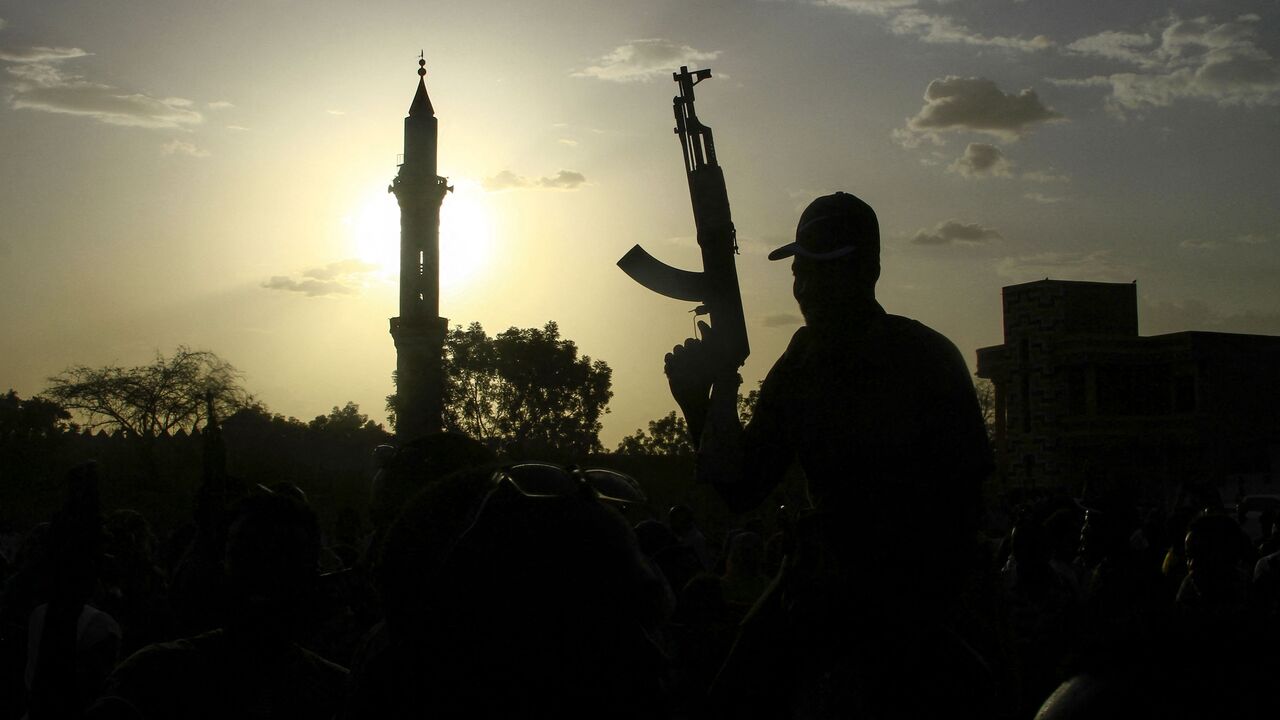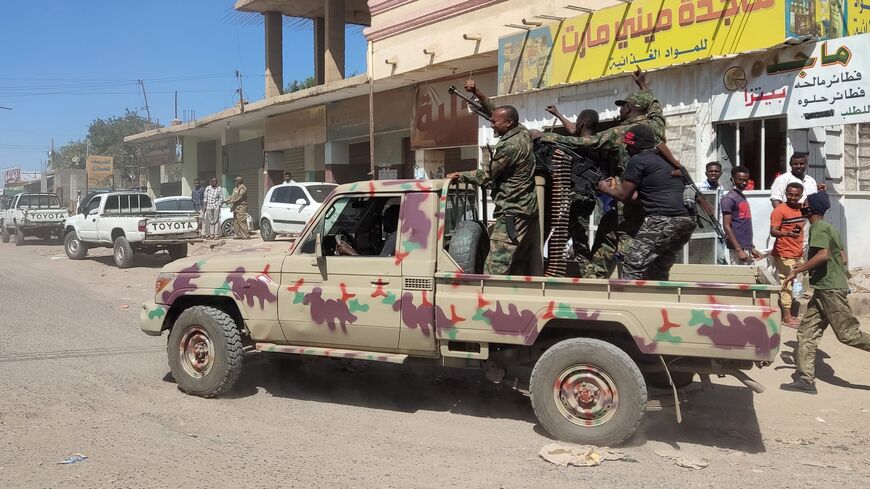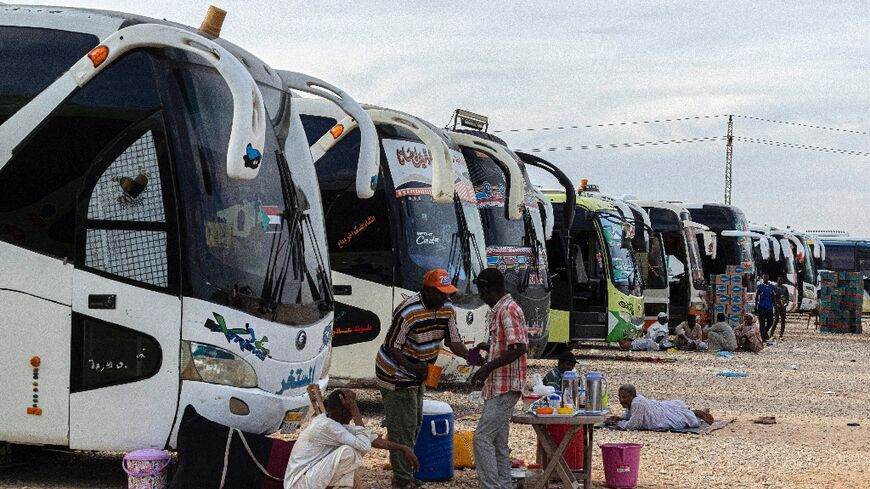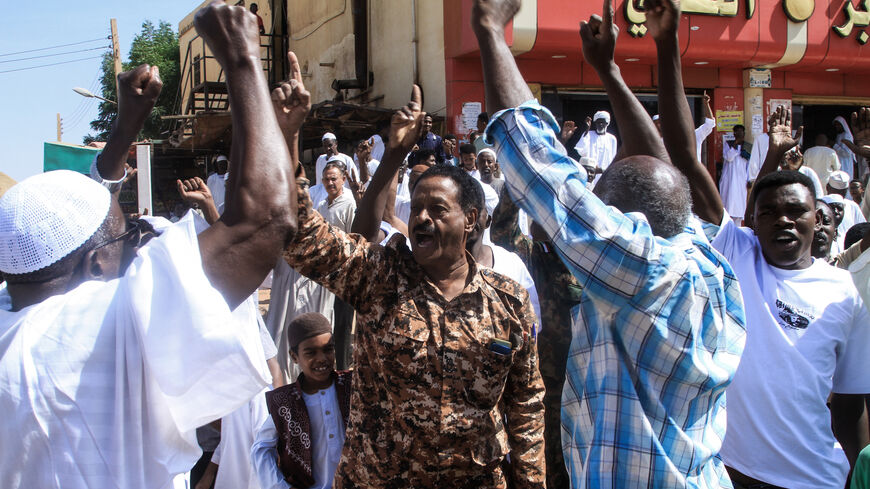UAE, China, Russia, Turkey violating Sudan arms embargo: Amnesty
Amnesty International reports foreign countries sending weapons and ammunition to the warring sides in Sudan, where civil war has raged for more than a year.

A constant flow of weapons to the Sudanese Armed Forces and the paramilitary Rapid Support Forces is fueling the ongoing civil war in Sudan, a rights group revealed on Thursday, as concerns grow about the involvement of foreign actors in the country.
In “New Weapons Fueling the Sudan Conflict,” released Thursday, Amnesty International reports finding evidence of weapons and ammunition manufactured or recently transferred in “large quantities” to Sudan from China, Russia, Turkey, and the United Arab Emirates as well as Serbia and Yemen, in some cases in violation of a United Nations arms embargo covering the western Darfur region.
The London-based watchdog examined 1,900 shipment records from two different trade data sources and about 2,000 photos and videos documenting weapons transfers to the war-ravaged country.
“Shipment-level trade data indicates that hundreds of thousands of blank guns have been exported to Sudan in recent years, along with millions of blank cartridges,” Amnesty said. “These are being converted en masse into lethal weapons in Sudan.”
Our new briefing investigates how large quantities of weapons are being imported into #Sudan, fuelling conflict and civilian suffering. Weapons and ammunition are often diverted to Darfur in flagrant breach of the existing UN arms embargo.
— Amnesty International (@amnesty) July 25, 2024
Read more 👇https://t.co/Y9yNG47kSp
According to the report, the UAE is one of the major suppliers of weapons, with the RSF having used armored personnel carriers (APCs) manufactured in the Gulf state, including Nimr Ajban, Terrier LT-79 and INKAS.
Amnesty said it contacted the manufacturer of the Terrier LT-79, the Armored Group, which denied exporting APCs to Sudan.
The UAE has been repeatedly accused of providing arms and other forms of support to the RSF, an accusation Abu Dhabi denies.
In June, Sudan's ambassador to the United Nations, Al-Harith Idriss Al-Harith Mohamed, said the army-aligned government had evidence of the UAE supplying weapons to the RSF and exacerbating the civil war. The UAE’s UN ambassador, Mohamed Abushahab, rejected the allegations, calling them “ludicrous” and aimed at distracting attention from “grave violations that are happening on the ground.”
Their clash coincided with a letter submitted by Mohamed to the UN Security Council requesting action against the UAE for violating UN resolutions, including the arms embargo.
The 41-page letter, released by the official Sudan News Agency, included photos of weapons with serial numbers along with photocopies of six Emirati passports said to have been found among the RSF in Sudan.
In January, a report by a five-member panel of researchers appointed by the UN Security Council documented cargo flights allegedly transporting weapons from the UAE to the RSF via the Chadian town of Amdjarass, near Sudan’s western border.
That report cited local sources as saying that weapons were being unloaded onto vehicles from planes at the Amdjarass airport several times a week and then heading toward Darfur and other parts of Sudan.
According to Amnesty’s findings, Russia is an “important supplier" of the weapons entering Sudan. The Russian manufacturers Kalashnikov Concern and Molot have exported AK- and SVD-pattern rifles, with both of the warring Sudanese parties using them across the country.
At least 1,500 Tigr DMRs, designated marksman rifles produced by Kalashnikov Concern, have been shipped to Sudan, mostly after 2019, according to shipment-level trade data cited by Amnesty.
The report identifies Turkey as another main supplier of weapons. BRG 55 assault rifles and various types of shotguns manufactured by Turkish weapons companies “have been exported en masse to Sudan in recent years.”
The report claims that Sarsilmaz, a Turkish company, has provided various types of weapons, including AK-pattern rifles, to the SAF, including to its leader, Gen. Abdel Fattah al-Burhan, and his top aides.
Amnesty further found that both the SAF and the RSF have used portable drone jammer systems, mortars and anti-materiel rifles produced in China.
“Amnesty International research shows that recently manufactured Chinese mortars have been used in El-Daein, East Darfur, and that recent Chinese small arms are widely present in other parts of Darfur and wider Sudan,” the report said.
Amnesty also identified Serbian assault rifles being used by RSF fighters and cited small arms recently being transferred from Yemen.
The war in Sudan erupted on April 15, 2023, as the SAF and RSF vied for power after years of instability following the fall of longtime dictator Omar al-Bashir in April 2019. More than 40,000 people have been confirmed killed, according to the independent Sudan Doctors Union, but the figure is believed to be much higher. Many deaths go unreported.
“All parties to the conflict are using a wide variety of arms to commit serious violations of international human rights and humanitarian law, in some instances amounting to war crimes and crimes against humanity,” Amnesty warned in its report.
“The current UN arms embargo is both too narrowly focused — covering only the Darfur region — and too poorly implemented to have any meaningful impact on curbing these weapons flows,” it further noted.
The UN Security Council imposed an open-ended arms embargo in Sudan’s Darfur in response to reports of war crimes and crimes against humanity committed in the region during the civil war between non-Arab rebels and the government in the early 2000s.
Amnesty called on the Security Council to take “urgent measures” to curb the flow of weapons and protect civilians, reiterating its previous call to expand the arms embargo to the rest of Sudan.
“It is clear that the existing arms embargo that currently applies only to Darfur is completely inadequate, and must be updated and extended to cover the whole of Sudan,” Deprose Muchena, Amnesty’s senior director for regional human rights impact, said in a press release Thursday.
“This is a humanitarian crisis that cannot be ignored. As the threat of famine looms large, the world cannot continue to fail civilians in Sudan,” he further warned.
The conflict in Sudan has created what the United Nations and rights groups describe as one of the world’s worst humanitarian crises. Some 12 million people have been forced to flee their homes, according to the UN International Organization for Migration, while around 24.8 million people — nearly half of Sudan's population — are in need of urgent assistance, OCHA, the UN Office for the Coordination of Humanitarian Affairs, estimates.




